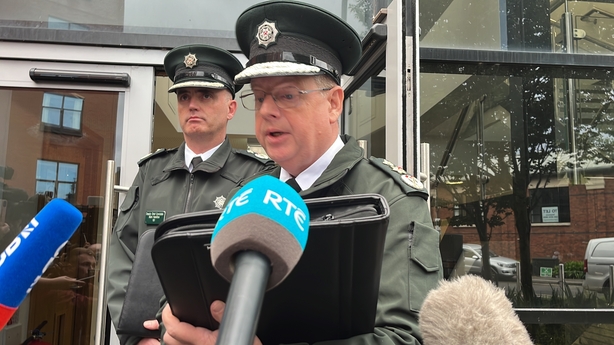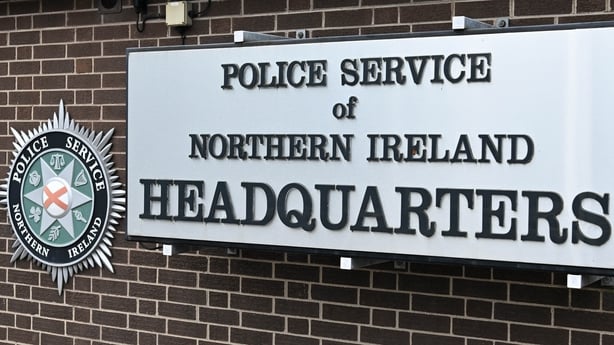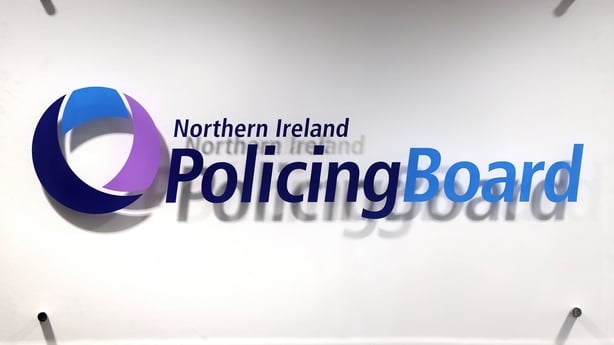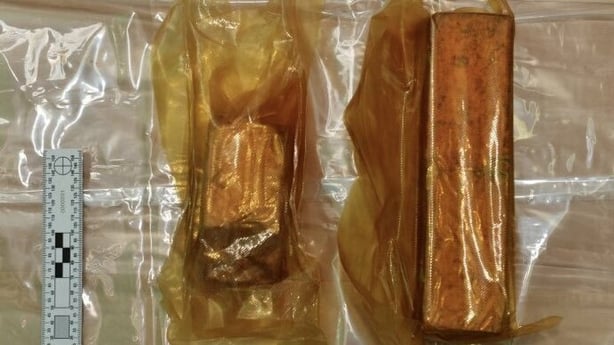On Tuesday 8 August, PSNI chief constable Simon Byrne was relaxing with his family on holiday.
Hundreds of miles away, a member of his staff was about to send an email which would help to force him from office and precipitate a crisis.
At its heart are questions about political influence in policing, the capacity of the PSNI's senior officers, the capability of Northern Ireland’s policing oversight body, and public confidence in a key plank of the Northern Ireland peace process.
It’ll be November before a new Chief Constable is selected and it could be January before they take up the role.
Meanwhile the man in charge, Deputy Chief Constable Mark Hamilton does not have the confidence of his officers and the senior team around him is subject to a performance review.
It’s a crisis of leadership at a time when police officers are facing dissident republicans with access to explosives, hand grenades and handguns.

"The peace process is built on two pillars," says Ulster University academic Dr Jonny Byrne, an expert in policing and justice.
"They’re new policing and new politics. Right now we have no politics and no leadership in policing so it’s dangerous.
"We can’t afford it to fail, if policing fails the peace process starts to fail. You are looking at the embodiment of the Good Friday Agreement here."
When that email was sent four weeks ago, it led to a sequence of events, the cumulative effect of which pushed Simon Byrne out the door of police headquarters.
It was a response to an innocuous Freedom of Information request for details of the numbers of officers at all ranks.
But tucked away, on a tab of an Excel spreadsheet, was the dataset on which the response was based.
It included the initial, surname, gender, rank, department, role and place of duty of around 10,000 officers and staff, including some on secondment to the security services and others working in surveillance.
Automatically published on an FOI website, it was only up for a couple of hours before the mistake was discovered and the material removed.
But by then it had already been downloaded and was being shared.
With the official threat level at severe, dissident republicans had their hands on a goldmine.
As the seriousness of the situation escalated Simon Byrne cut short his holiday and flew home.

On its own it was a major crisis. Then, three weeks to the day, a Belfast court delivered the coup de grace.
In an upper room in Belfast’s Royal Courts of Justice came a devastating judgement.
A judge found Simon Byrne had bowed to pressure from Sinn Féin when he unlawfully disciplined two junior constables over a controversial arrest following a Troubles commemoration in 2021.
The officers had appealed and now they had won.
The man charged with keeping the law had been found to have broken it.
The data breach had been potentially survivable, but allegations of political interference were explosive.
The finding that Mr Byrne had sanctioned his own officers due to a "real or perceived threat" that Sinn Féin would withdraw support from policing if the matter wasn’t dealt with promptly, created an immediate political backlash.
Sinn Féin leaders Michelle O’Neill and Gerry Kelly had direct contact with senior officers at the time but denied they’d threatened to pull out of policing.
But unionists wanted Simon Byrne gone and his handling of a key policing board meeting on 31 August stiffened their resolve.
For five hours policing board members – including politicians - questioned him about the dry technicalities of the court case.
But as they prepared to move on to a final session in which they planned to ask him hard questions about his future – Mr Byrne asked the chief executive to step out of the meeting with him and he dropped a bombshell.
He was considering appealing the critical court judgement, even though a couple of days earlier he’d publicly accepted it.
Total confusion ensued, one source said, Simon Byrne had brought down the guillotine on further discussion. Policing Board members who didn’t want to prejudice any possible case had no choice but to cut it short.
He may have thought it was a clever ploy, but it finished his career.

Policing Board members felt played - the police union which represents the two disciplined constables was outraged – a motion of no confidence from the rank and file seemed certain.
On the way out of the meeting Simon Byrne told reporters he wasn’t resigning, but the words rang hollow.
It was the last time he’d be seen publicly in the role.
By Monday, he was gone.
The issue which precipitated the crisis – the judge’s finding that Simon Byrne bowed to political pressure - has become lost amidst the drama.
Jon Burrows thinks it shouldn’t be. The retired PSNI officer served for more than 20 years, finishing as a superintendent in charge of police discipline.
He gave evidence on behalf of the two constables in the court case.
He says officers must make snap decisions in difficult, dangerous and dynamic situations.
"Officers need to know that if they are hard-working and honest, even if something causes a political furore, that they will be supported and treated lawfully and fairly, and they don’t have that trust. Policing can’t work like that."
It’s not just the role of political parties which will be under the spotlight now.
Sources suggest the relationships between the policing board, the Justice Department and senior police officers have been too cosy, blunting the board’s accountability function.
Then there's the huge hole in the PSNI budget which is impacting its capacity to carry out core policing functions and has forced a pause to recruitment.
Catholic recruitment has flatlined at around one third, against a population figure of 42%, causing concern in some quarters.

In the midst of it, all ordinary policing continues. There’ve been notable successes in recent days seizing guns and explosives from dissident republicans in Derry.
But the 6,600 PSNI officers need competent leadership, and soon.
Dr Byrne reckons the post of Northern Ireland’s Chief Constable remains one of the top two jobs in UK policing, alongside that of commander of London’s Metropolitan Police.
Whoever takes it will need the flexibility of a diplomat and the resolve to chart an independent course for the PSNI, which often finds itself buffeted from all sides here.





